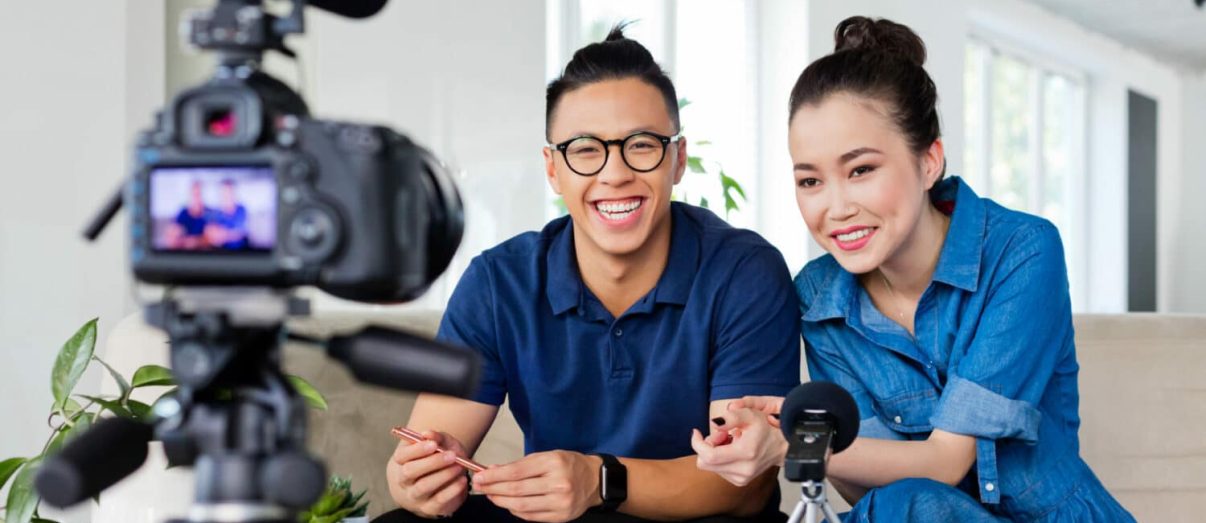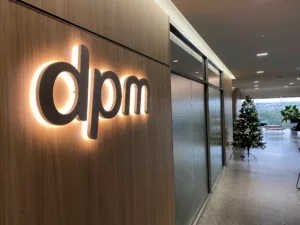Anthony: Hey everyone! For those who don’t know me, my name is Anthony Dickinson, and I’m a Tax Consultant at DPM. Today, we’ll be continuing our conversation regarding the nerves, what to expect and how to prepare for your internship. Today joining me I have Ted Elkington, Ted and I met at the end of 2019 when he graduated from Monash University, and he has since moved to Wodonga Albury Hospital. Ted along with a lot of Interns has experienced a strange year, more so for Ted being stuck on the border. Welcome Ted, thanks for joining us today.
Ted: No worries. Thanks for having me.
Anthony: So firstly, I just want to start off by asking this question. How’s your year been affected by COVID? And how have you enjoyed your first year as a Doctor?
Ted: Yeah, I’ve had a bit of a mixed year because of COVID this year, as you alluded to being on the border, we had to deal with the border being closed mid year for a considerable amount of time. That provided a lot of logistical dilemmas, particularly with patients getting care, our bigger hospital being in Albury was shut off to quite a few of our patients. They were able to get across if there were emergency cases, but not so much, just the day to day things you’d usually see. So, in that sense, a lot of the management for us was a lot more logistical nightmare. In terms of how it affected me, personally, it wasn’t too bad. We were fortunate in the sense that COVID never really hit our area hard. We only had a couple of cases that are only a few of those came into hospital. So, in that sense, we were quite lucky. Obviously, we still had to go through all the procedures and everything. But again, of that logistical challenge. But in terms of the things that we heard of while they were happening in Melbourne moment at the time, we were very fortunate to be missing out on all that.
Anthony: Yeah. So, you haven’t been in lockdown for too long, you were able to bypass the border. Is that right?
Ted: Yeah. So, they, they realised quite early on, when they were talking about closing the border, how connected we were, and how much that would cause challenges to things, most notably, the hospital, the number of times that got mentioned, it was quite entertaining to see it in the national news. But they worked out a system quite well with the permits and passes that we were still able to cross, the only issue being that often take quite a line-up. So, a five-minute trip across the border suddenly became half an hour.
Anthony: Yeah. And what’s it been like working in a rural setting?
Ted: Again, it’s been good, I’ve certainly enjoyed the hands-on side of things a lot more. There’s a lot of procedures that I probably wouldn’t usually be able to get to do, that I’m being asked to do. I’m still feeling comfortable doing as well, because they’ve got the right amount of supervision, right amount of help. But being able to use a machine on the ward, it’s been, yeah, it’s been really rewarding. There are, you don’t, I haven’t been able to get a lot of the specialised areas, we don’t have really any specialties here. We have a lot of Specialists Consultants, but they’re all still doing general medicine. So, you get the mixed bag, but then everything that’s really, super interesting or exciting, goes to Melbourne or Sydney or one of the tertiary centres. So, in that sense, it’s been good for my development in terms of a general sense. I’ve really been able to work on the day to day things and my general knowledge. But I feel there’s also been a lot of things that I want to potentially miss out on being on a rural area. But for my first year as an internship, it’s probably been the best thing so far.
Anthony: Yeah, so what have you found most challenging about your year?
Ted: The most challenging thing I found this year hasn’t got so much to do with my internship in terms of the hospital side of things, it’s more the fact that I’m in a long-distance relationship with my girlfriend and of course, she’s in Melbourne. So COVID made everything super fun. Ah, that certainly has been a challenge, I’ve certainly been able to make that a lot of good friends as well around here that has helped in that regard, but it is still difficult being that far away. We also sometimes get quite understaffed. So, in that sense as well, there’s a lot of cover shifts that sometimes instead of seeing if you want to do them sometimes ask, “can you please do this?”, which is great from a financial standpoint, but when you want a bit more time off, you’ve got to try and help, because we are understaffed, we can make it quite challenging sometimes.
Anthony: Yeah. So, have you found it to be difficult to get that work life balance, you know, working rural and having this shortage of staff in a sense?
Ted: Yeah, I feel my work life balance has also depended a lot on what rotation I’m on. The surgery, for example, was a nightmare for work life balances. And that wasn’t so much balance as a one, one was clearly in demand there. Other rotations being on the Gen Med rotation earlier in the year, I had a pretty good balance as well. And it depends on how much the workload is that the time, will depend on how my work life balance is gone. I still try to do it, I still try to do things such as going for regular runs, I catch up with friends when I can now that we’re allowed to. But yeah, it is difficult to it takes a lot of effort to maintain that balance and to continue it.
Anthony: Yeah, and who are you finding in a rural hospital, who are the best people to ask for help? Who are you guided by? Who are you directed by?
Ted: So, I suppose I’m lucky in the sense that in rural area, we have a lot of face to face contact with the Consultants. So, if there is an issue, we can bring it up quite easily. My workforce is suboptimal. But I feel that might just be a general feeling amongst all hospitals, I don’t have the people have got as contacts on exactly the greatest, so it’s hard to raise issues with them sometimes, and that’s certainly been the challenge a lot of, my Interns, fellow Interns have shared. But having said that, we’ve been able to raise things with the Registrars and other Senior Medical Officers, we’ve been able to raise the issues amongst ourselves and with our Junior Medical Board that they’ve been able to raise. And we’ve had made progress in some areas that we saw as big issues in terms of rostering and things like that. But it has been a bit of an uphill challenge.
Anthony: So, one question I’m hearing a lot of from the students is, does it matter if I don’t get my first preference during internship?
Ted: Um, it doesn’t matter so much for your internship year, you get same amount of training and often, in depending on the area in you might receive more, more training in one area, a rural hospital, you’ll get a lot more hands on experience that’s more helpful down the track versus an internship at one of the higher hospitals where you might get a lot of specialised stuff, but not so much the general broad scope of things. It doesn’t matter down the line, not in the long term. In the short term, the hospital sometimes does look at internal applicants first for the year after and for their training pathways. But I have heard plenty of stories where people have applied to the hospital not necessarily gotten into the training pathway they wanted straight up, but then have managed to get in the year afterwards. So, you can still get to the hospitals you want to and still getting into the training pathways that you want to get into as well. And it’s not necessarily all dependent on if PMCV puts you in the hospital that you’re wanting first up for the internship. It might take a little bit longer, and it might be the most direct route, but it is still you can still get to all the training pathways that you want if you put in the work and you’re willing to wait that little bit extra longer.
Anthony: Yeah, so pretty much just don’t shut doors. Because new ones can open always, yeah.
Ted: Yeah, don’t give up hope straight up just because its your first rotation.
Anthony: Great feedback and then just finally, is there any advice you can offer? You know, students now I do have a little bit of time off before they start next year. Anything you would have done differently?
Ted: Well, my main that advice is now redundant. It was going to be go traveling for two months, but you know well.
Anthony: So just enjoy some time off, really yeah?
Ted: Enjoy time off. Do try to get yourself steady with everything that you’ve got in the first week prior to starting even your orientation. I’ve heard quite a few stories about people who rock up the day before still moving to a new house halfway through and that doesn’t set them off for a good stead for their internship. You could be well prepared, but it is still I find the most even the most prepared people still daunted by their first day as an Intern. Just because you’re new and suddenly you do have all these responsibilities, they’ve still done well, and nothing bad has happened because of it, but it’s still quite daunting and I feel being settled initially is good. So, the three weeks prior, enjoy all the time that you’ve got off. If you can travel anywhere in Australia, go somewhere, go get some sun, go relax. And then when you start getting to say week before starting, start prepping yourself getting yourself ready, get everything else sorted, so that you’re ready to go day dot.
Anthony: Yeah, awesome. Well, thank you very much for your time, Ted, we understand working rurally you are short on time. We do really appreciate, it was great advice. Hopefully, the students can take a little confidence out of this and do start to feel a bit more prepared. So, enjoy your final rotation. I know you’ve got a few weeks off in January. I’m sure you’re probably looking forward to seeing your girlfriend or getting away at some stage.
Ted: Yes, indeed.
Anthony: But yeah, we’ll thank you again. We appreciate it.
Ted: No problem. Good to talk to you.
Anthony: Awesome.
Anthony: Thank you for watching. We didn’t really touch on your finances, but that’s something you might also want to start thinking about and getting prepared for next year. What DPM offers in this way is a free no-obligation initial consultation with myself or one of the other Tax Consultants at DPM. In an initial consultation, what we cover off is a personalised salary packaging plan tailored towards you and the hospital you’ll be going to, we’ll cover off your taxes, go through insurances as well as discussing future plans and goals. If you feel you want to book in one of these, feel free to jump on to our websites or DM us. Thank you for watching and we look forward to seeing you soon.









